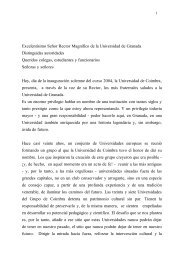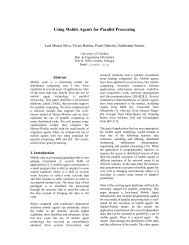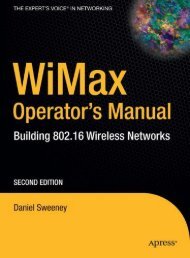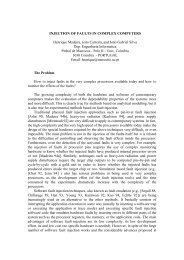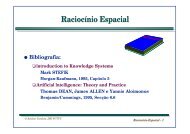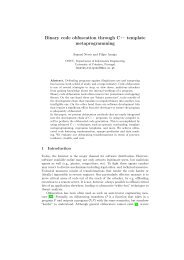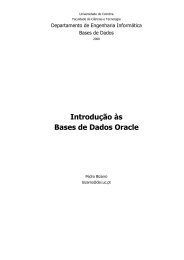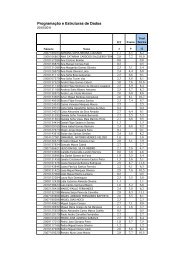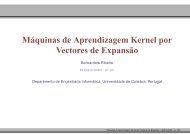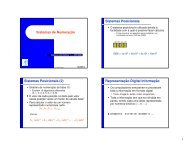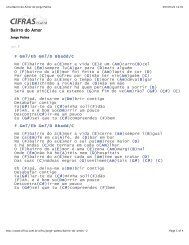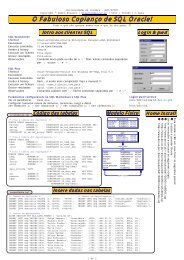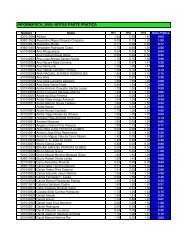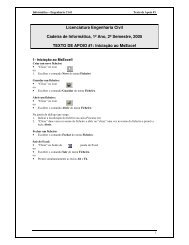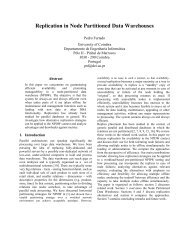Onto.PT: Towards the Automatic Construction of a Lexical Ontology ...
Onto.PT: Towards the Automatic Construction of a Lexical Ontology ...
Onto.PT: Towards the Automatic Construction of a Lexical Ontology ...
You also want an ePaper? Increase the reach of your titles
YUMPU automatically turns print PDFs into web optimized ePapers that Google loves.
8.4. Using <strong>Onto</strong>.<strong>PT</strong> 155<br />
Uma população (grupo com o mesmo tipo de organismo) pode adaptar-se através da<br />
evolução (desenvolvimento gradual) durante muitas .<br />
(a) gerações (c) adequações<br />
(b) tradições (d) maiorias<br />
Figure 8.8: Cloze question answered correctly using each resource.<br />
for improving <strong>the</strong> performance <strong>of</strong> NLP tasks where it is important to compute<br />
<strong>the</strong> similarity between words or concepts. Moreover, <strong>the</strong> results are better using<br />
CARTÃO and PAPEL than using <strong>Onto</strong>.<strong>PT</strong>, which suggests that, for this specific<br />
task, a lexical network is more adequate than a wordnet. No strong conclusions can<br />
be taken because, even though very similar, <strong>the</strong> algorithms used are also different.<br />
For instance, <strong>the</strong> algorithm using <strong>Onto</strong>.<strong>PT</strong> is more complex and relies on WSD,<br />
which can be an additional source <strong>of</strong> noise.<br />
Ano<strong>the</strong>r conclusion that emerges from this exercise is that merging knowledge<br />
from different resources originates better results. This explains why <strong>the</strong> accuracy<br />
using CARTÃO is higher than using only parts <strong>of</strong> it, more precisely, PAPEL, DA,<br />
or Wiktionary.<strong>PT</strong>.<br />
Finally, we should add that our results are much lower than <strong>the</strong> best accuracy<br />
for answering TOEFL synonymy questions automatically with <strong>the</strong> help <strong>of</strong> a<br />
lexicon (78.75%, by Jarmasz and Szpakowicz (2003)). However, <strong>the</strong> task we have<br />
performed is certainly more complex, and cannot be blindly compared. In <strong>the</strong> future,<br />
it would be interesting to try both <strong>Onto</strong>.<strong>PT</strong> and CARTÃO in <strong>the</strong> synonymy<br />
problem, analogy problems, and o<strong>the</strong>rs, as solving cross-words. So far, we did not<br />
find usable datasets with such resources for Portuguese, but we will keep looking for<br />
<strong>the</strong>m.



